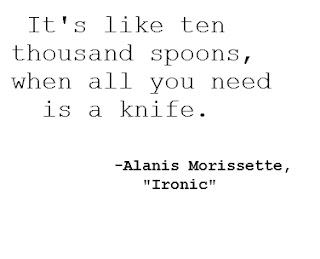Since its original release in 1983, A Christmas Story has become one of the best-loved and most popular holiday films of all time. Most people don't even know that it's actually based on a book of short stories, written by a guy who actually lived it.
The Book
Jean Shepherd published
In God We Trust, All Others Pay Cash in 1966. It's a semi-autobiographical collection of humorous short stories, and many of them were used to inspire the full-length feature film
A Christmas Story.
In the book, Shepherd writes about his hometown in Indiana, his friend Flick, and the longing he had to own a real Red Ryder BB gun. And in the book, Ralphie is all grown up. He has returned to his hometown, where he finds Flick at the bar he inherited from his father. They talk about the "good old days" together, and this is where we get most of the stories that unfold in the book.
The book goes far behind a single holiday season, and in fact there's one story involving a teenage Ralphie (unimaginable, I know). Some of the best vignettes from the movie are present, however, and fans of the flick are sure to enjoy reading all about the infamous leg lamp, the hounds that live next door, the heroic battle between Dad and the furnace and Little Orphan Annie's secret decoder ring.
The tone is different. The author has a much more dry humor, he is brilliant at sarcasm. There isn't a lot of sarcasm in the movie; it's told to us through the eyes of a child. The short story collection is being told to us through the eyes of a man as he looks back on his life. But it's all the characters you love from the movie, explored more in-depth. A Christmas Story is only one piece; this book is the entire pie.
The Film
The flavor of the book's setting and characters is well-captured in A Christmas Story, which lifts several chapters from the page to put them on the screen. As the title would suggest, the story takes place entirely during the holiday season.
You pretty much have to be committed to not watching this film to have missed it. A Christmas Story is on television all during the holidays, you can find it plenty of places online, and sometimes you'll even find it playing on a 24-hour loop so you can't possibly miss one moment of the story. It's like that.
The movie revolves around Ralphie, who was played by then-adorable Peter Billingsly (and whom you can catch in a cameo in a much more recent holiday film, Four Christmases). Though released in 1983, it's set in a much younger era, the '50s. Ralphie's mom is your typical harried housewife, Dad is your basic working stiff. It's Indiana, it's Christmastime, and all Ralphie wants in the entire world is a Red Ryder BB gun.
When he raises the topic with his mother, however, she scoffs. "You'll shoot your eye out," she warns, and pretty much writes the whole thing off.
It's a crushing blow, the worst of the worst. Ralphie is forced to make his appeal elsewhere, and opportunity knocks when the teacher assigns an essay to the students. Everyone groans, until they learn they get to write about what they want for Christmas. It's perfect! Ralphie works hard to compose a fantastic essay, praising the merits o the BB gun of course, and turns it in proudly.
It comes back with a low grade and a hand-written note: "You'll shoot your eye out!"
Defeated again. Ralphie's got one last shot at realizing his Christmas dream: Santa Claus. Who else but the big man himself can help now?
Like its young leading actor, this flick is just adorable. It's filled with little stories, like the defeat of schoolyard bully Scott Vargus, the incident involving Flick and the true art of giving dares to others, and who could forget the fudge episode? If you haven't seen it, your holiday celebration is not complete and will never be complete. You must watch this movie. It's like that.
What Got Adapted?
Jean Shepherd narrates the film, and had a hand at writing the screenplay, so it very closely resembles the author's writing style and voice.
Some of the stories are adapted in order to fit the Christmas theme; the hungry dogs is a standout example. Text from the book is lifted right from the page to the film, however, so the scenes are well-captured even when they're changed to fit the movie. See the movie, then read the book to get a dose of Ralphie's family life during every season, not just the holidays.

























